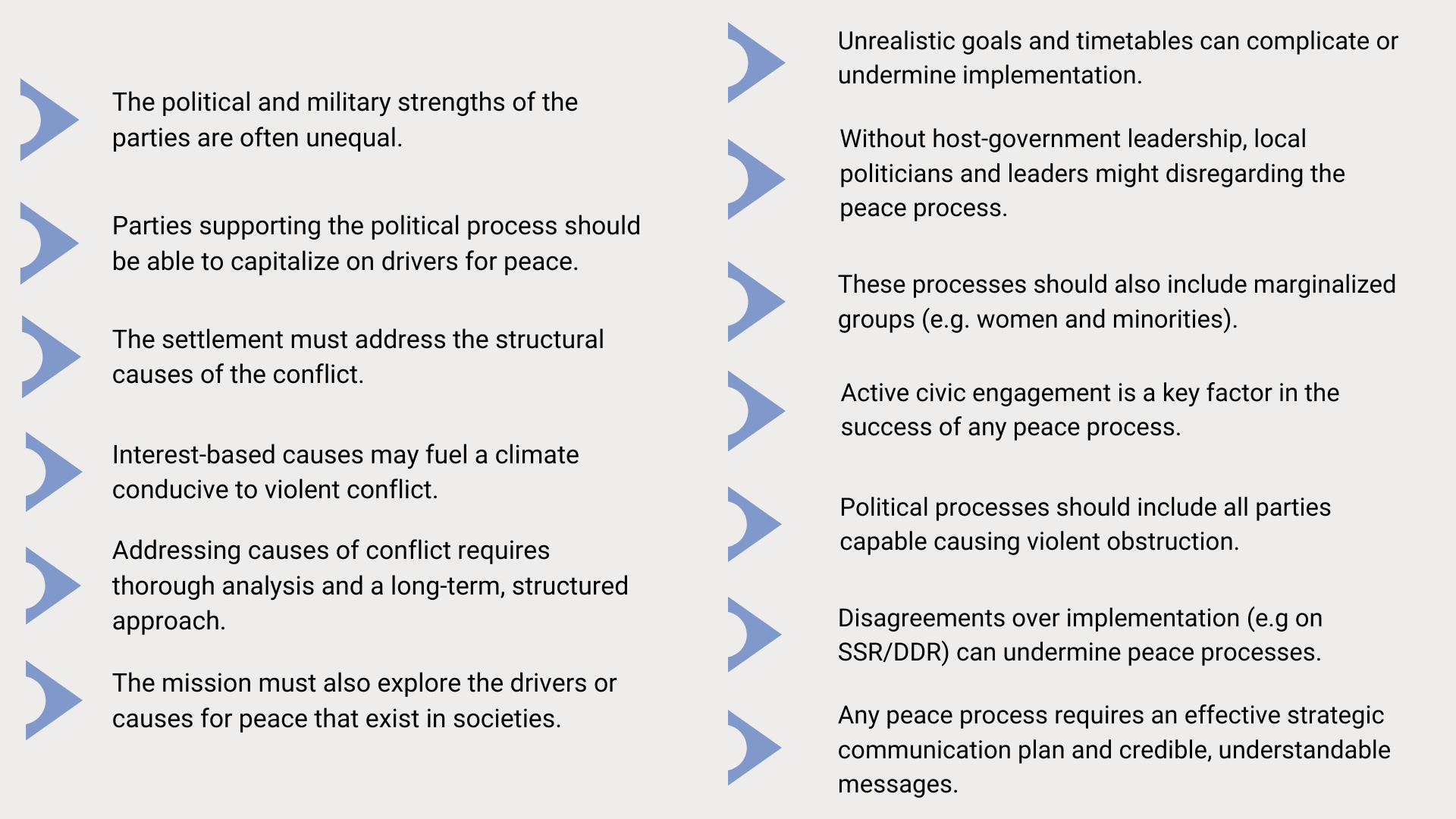Facilitating and supporting political processes is a central component of a peacekeeping operation. This reflects their political nature, and the importance of political processes and solutions.
“They remain above all, a political instrument, which works to expand political space for the implementation of peace agreements achieved by peacemakers”
UN peace operations should be part of a comprehensive political solution to conflict. Without political engagement a mission is unlikely to affect a given political situation. In fact, this could jeopardize the mission’s own legitimacy and efficacy.
Contemporary intra-state conflicts are complex, with transnational elements and a proliferation of actors. The mission, especially the MLT, must navigate a crowded political environment. This lies at the centre of gravity of sustainable peace.
Operational Outputs
Host Country Engaged and Relations Promoted
Peace operations often face high expectations in the host country. It is essential for the ...Peace Process Supported
A peace operation can only succeed if the conflict parties commit to resolving the conflict ...Legitimate State Authority and Institutions Strengthened
In a post-conflict transition environment, state authority must be strengthened to re-institute the social contract ...National Reconciliation Promoted
Sustainable peace depends on leaders and the population desiring reconciliation more than conflict. Reconciliation, however, ...Peaceful and Credible Elections Held
Transitional political arrangements are common in many post-conflict countries. Such arrangements may remain in place ...Ensuring the Political Primacy of Peace Operations
Peace operations are political undertakings. They “expand political space for the implementation of peace agreements achieved by peacemakers”.
They are both driven by and the drivers of a political process. This is why political solutions must guide all operational responses, despite security factors.
As the 2015 HIPPO report noted: “lasting peace is achieved through political solutions and not through military and technical engagements alone”.
The MLT must use political advocacy to address the causes of conflict. In doing so, it must also pay attention to the causes of peace.
It should engage with conflict parties (including those outside the peace process). It must work with CSOs and local populations to help prevent and resolve conflicts.
The HoM is the lead facilitator on the ground. They communicate with political interlocutors (the host government, conflict parties and regional partners). At the same time, all mission actors must be aware of the political implications of their actions.
The political process usually comprises a range of activities, including:
- negotiating an enduring and comprehensive peace agreement between the parties to a conflict;
- supporting and facilitating an inclusive political process to move towards a sustainable peace;
- supporting the host government to extend legitimate state authority;
- holding peaceful and credible elections that will strengthen the democratic processes; and
- national reconciliation.
All these activities have become core mandated tasks for most peace operations.
Given the political dimensions of these processes, mission leaders must show political acumen. They must look beyond everyday professional perspectives to underlying political imperatives.
For example, working with national police services is by nature a political task. A PC needs to engage national authorities and the mission’s Political Affairs section.
The same is true for the military. This may be uncomfortable for uniformed services, which see themselves as more apolitical. But finding political entry points for national reforms is critical to their success.
